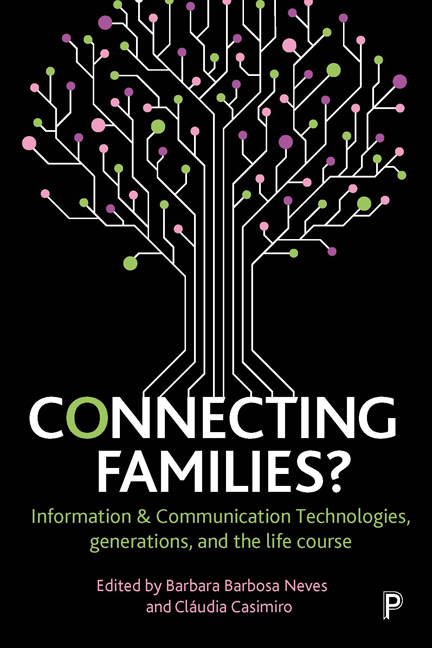Book contents
fourteen - Permeability of work-family borders: effects of information and communication technologies on work-family conflict at the childcare stage in Japan
Published online by Cambridge University Press: 22 April 2022
Summary
Introduction
Childcare stage in Japan
In Japan, life transitions to childcare stages are often difficult, especially for women who try to continue their vocational career. From the 1980s to 2000s, while the overall female employment rate increased, the employment rate of women with young children remained low. Only recently have nationwide statistics begun to show that the ratio of women continuing to work before and after the birth of their first child has increased from 30% to 40% (Japanese National Institute of Population and Social Security Research, 2016). However, 17.1% of women leave their jobs upon marriage, and 33.9% upon the birth of their first child (Japanese National Institute of Population and Social Security Research, 2016); even now it is not uncommon for Japanese women to retire due to family responsibilities.
A major factor behind this situation is that people have not been allowed appropriate arrangements to allow them to combine work and family. The percentage of people working 60 hours per week or more was 10% in 2008 and 7.8% in 2016. In particular, the percentage of male workers in their thirties, corresponding to the childcare stage, stands at 20% for 2008 and 14.7% for 2016 (Japanese Ministry of Internal affairs and Communications, 2008, 2016b). In addition to the significant trend of full-time workers in Japan working long hours, in many cases a considerable commute time is required when living in one of the three major metropolitan areas: Tokyo, Osaka and Nagoya (Nagase and Moriizumi, 2011). The adoption of flexible working time systems is needed especially for workers at the childcare stage (Cabinet Office Government of Japan, 2015).
Telework adoption and ICTs
In recent years, there have been reports that many large Japanese companies have introduced teleworking (Japanese Ministry of Internal Affairs and Communications, 2015). While the share of teleworkers was less than 5% of all employees in 2008‒2010, it was 12.5% in 2012 (Japanese Land, Infrastructure and Transportation, 2013) and 16.2% in 2016 (Japanese Ministry of Internal Affairs and Communications, 2016a).
A major trigger of this development was the Great Tōhoku earthquake of 11 March 2011. The widespread paralysis of public transportation and disruption to distribution networks in the immediate aftermath of the earthquake made a large number of companies recognize the importance of teleworking.
- Type
- Chapter
- Information
- Connecting Families?Information and Communication Technologies, Generations, and the Life Course, pp. 255 - 272Publisher: Bristol University PressPrint publication year: 2018



